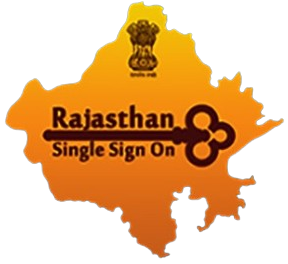Linking Aadhar with SSO ID Rajasthan is a crucial step for residents to access a wide range of e-governance services seamlessly. This guide delves into the importance of linking Aadhar with your SSO ID, the key factors impacting this process, the tradeoffs involved, and the challenges associated with different approaches. By providing an objective and informative overview, we aim to help users understand the significance and procedures involved in this linkage.

Understand to Aadhar with SSO ID Rajasthan
Before delving into the linking process, it’s essential to understand what Aadhar and SSO ID Rajasthan are:
Aadhar: It is a 12-digit unique identity number issued by the Unique Identification Authority of India (UIDAI) to all Indian residents. Aadhar serves as a proof of identity and address across India.
SSO ID Rajasthan: This is a unique identifier provided by the Rajasthan government that allows citizens to access various state government services through a single login credential.
The Significance of Linking Aadhar with SSO ID
The integration of Aadhar with SSO ID Rajasthan represents a significant step towards digital governance. This linkage aims to:
- Enhance authentication: By combining the national Aadhar system with the state-level SSO ID, the authentication process becomes more robust and reliable.
- Streamline service delivery: The integration allows for seamless access to both state and central government services through a single platform.
- Reduce fraudulent activities: The linkage helps in eliminating fake or duplicate identities, thereby reducing the chances of fraud in government schemes and services.
- Improve data accuracy: By cross-referencing information between Aadhar and SSO databases, data inconsistencies can be identified and rectified.
Key Factors Impacting the Linking Process
Several factors play a crucial role in the successful implementation of linking Aadhar with SSO ID Rajasthan:
- Technological Infrastructure: The process requires a robust technological backbone to handle the integration of two complex systems securely.
- Data Privacy and Security: Ensuring the protection of citizens’ personal information during and after the linking process is paramount.
- User Awareness and Education: Citizens need to understand the importance and process of linking their Aadhar with SSO ID.
- Legal Framework: The linkage must comply with existing laws and regulations regarding data protection and privacy.
- Interoperability: The systems must be designed to work seamlessly together, despite being developed independently.
- Accessibility: The linking process should be accessible to all citizens, including those with limited digital literacy or access to technology.
The Process of Linking Aadhar with SSO ID Rajasthan
Let’s walk through the step-by-step process of linking Aadhar with SSO ID Rajasthan:
Step 1: Log in to SSO Portal Visit the official SSO Rajasthan portal and log in using your SSO ID and password.
Step 2: Navigate to Profile Section Once logged in, go to your profile or account settings section.
Step 3: Locate Aadhar Linking Option Find the option to link your Aadhar card. This might be labeled as “Link Aadhar” or “Update Aadhar Details.”
Step 4: Enter Aadhar Details Input your 12-digit Aadhar number and name as per the Aadhar card.
Step 5: Verify OTP An OTP will be sent to the mobile number registered with your Aadhar. Enter this OTP for verification.
Step 6: Consent and Submit Provide your consent for linking Aadhar with SSO ID and submit the request.
Step 7: Confirmation Upon successful linking, you’ll receive a confirmation message. Your Aadhar is now linked to your SSO ID Rajasthan.
Challenges in Linking Aadhar with SSO ID Rajasthan
While the process may seem straightforward, several challenges can arise:
- Data Mismatch: Discrepancies between Aadhar and SSO ID information can lead to linking failures.
- Technical Glitches: Server issues or connectivity problems may disrupt the linking process.
- Privacy Concerns: Some citizens may be hesitant to link their Aadhar due to privacy concerns.
- Digital Divide: Not all citizens may have the necessary digital literacy or access to complete the online linking process.
- System Overload: High traffic during peak times can slow down or crash the linking portal.
Balancing Security and Convenience
One of the primary challenges in implementing this linkage is striking the right balance between security and user convenience. While robust security measures are essential to protect sensitive personal data, overly complex procedures can deter users from completing the linking process.
To address this, the system employs multi-factor authentication and encryption protocols. However, it’s important to note that each security measure comes with its own set of pros and cons:
Biometric Authentication: Pros: Highly secure, difficult to replicate Cons: Requires specialized hardware, may not work for all users
OTP Verification: Pros: Easy to implement, familiar to most users Cons: Relies on mobile network, potential for interception
Document Verification: Pros: Provides additional layer of authenticity Cons: Time-consuming, may require manual intervention
The Impact of Aadhar-SSO ID Linkage on E-Governance
The integration of Aadhar with SSO ID Rajasthan has far-reaching implications for e-governance in the state:
- Improved Service Delivery: With linked identities, government departments can provide more personalized and efficient services.
- Enhanced Data Analytics: The integration allows for better data analysis, leading to more informed policy-making and resource allocation.
- Reduced Redundancy: Citizens no longer need to provide the same information multiple times across different government platforms.
- Increased Transparency: The linkage helps in tracking service delivery and reducing chances of corruption or mismanagement.
- Cost-Effective Governance: Streamlined processes lead to reduced administrative costs for the government.
Best Practices for Citizens
To ensure a smooth linking process and maximize the benefits of Aadhar-SSO ID integration, citizens should:
- Keep Information Updated: Ensure that your personal details in both Aadhar and SSO ID are up-to-date and consistent.
- Use Secure Connections: Always use a secure internet connection when performing the linking process.
- Verify Official Sources: Only use official government portals for linking to avoid phishing attempts.
- Understand Privacy Settings: Familiarize yourself with the privacy settings and data usage policies associated with the linkage.
- Report Issues Promptly: If you encounter any problems during the linking process, report them to the relevant authorities immediately.
Future Prospects and Developments
As technology continues to evolve, we can expect further enhancements in the Aadhar-SSO ID linkage system:
- AI-Powered Verification: Implementation of artificial intelligence for faster and more accurate verification processes.
- Blockchain Integration: Utilizing blockchain technology to enhance data security and transparency.
- Expanded Services: Integration of more government and private sector services under the linked identity system.
- Cross-State Interoperability: Potential for SSO IDs to be recognized across different states, facilitating easier access to services for migrants.
Final Lines
The linking of Aadhar with SSO ID Rajasthan represents a significant stride towards digital integration and efficient e-governance. While it offers numerous benefits in terms of improved service delivery, enhanced security, and streamlined processes, it also presents challenges related to data privacy, technological implementation, and user adoption.
As we navigate this digital transformation, it’s crucial for both the government and citizens to work collaboratively. The government must ensure robust security measures, transparent policies, and accessible systems. Simultaneously, citizens need to be proactive in understanding the process, updating their information, and using the integrated system responsibly.
The success of this initiative will largely depend on striking the right balance between security and convenience, addressing the digital divide, and fostering trust in the system. As Rajasthan continues to evolve its digital governance framework, the Aadhar-SSO ID linkage stands as a pivotal step towards a more connected, efficient, and citizen-centric administration.
By embracing this digital integration responsibly and addressing the associated challenges, Rajasthan can set a precedent for other states in leveraging technology for better governance. As we move forward, continuous evaluation, feedback, and improvements will be key to realizing the full potential of this digital integration initiative.
Is it mandatory to link my Aadhar with SSO ID Rajasthan?
While the government encourages linking for better service delivery, it’s important to check the latest official guidelines. Some services may require linked accounts, while others might remain accessible without linkage. Always refer to the official SSO Rajasthan portal for the most up-to-date information on requirements.
What should I do if my Aadhar details don’t match my SSO ID information?
If there’s a mismatch between your Aadhar and SSO ID details, first ensure that your SSO ID information is correct. If it is, you may need to update your Aadhar details through the UIDAI portal. If both are correct but still don’t match, contact the SSO Rajasthan helpdesk for assistance in resolving the discrepancy.
Can I unlink my Aadhar from SSO ID Rajasthan if I change my mind later?
The process for unlinking may vary depending on current policies. If you wish to unlink, check the SSO Rajasthan portal for any available unlinking option. If not found, contact the SSO Rajasthan support team for guidance on the current procedure and implications of unlinking.
How can I check if my Aadhar is already linked to my SSO ID Rajasthan?
Log into your SSO Rajasthan account and navigate to your profile or account settings. Look for a section that shows linked accounts or Aadhar details. If you can’t find this information, there should be an option to link Aadhar, which would indicate that it’s not yet linked.
What additional security measures are in place to protect my data after linking Aadhar with SSO ID?
The system employs multiple security measures including encryption, secure servers, and access controls. However, for specific details on current security protocols, refer to the privacy policy and security information provided on the official SSO Rajasthan portal. Remember to always keep your login credentials confidential and use secure networks when accessing your account.
